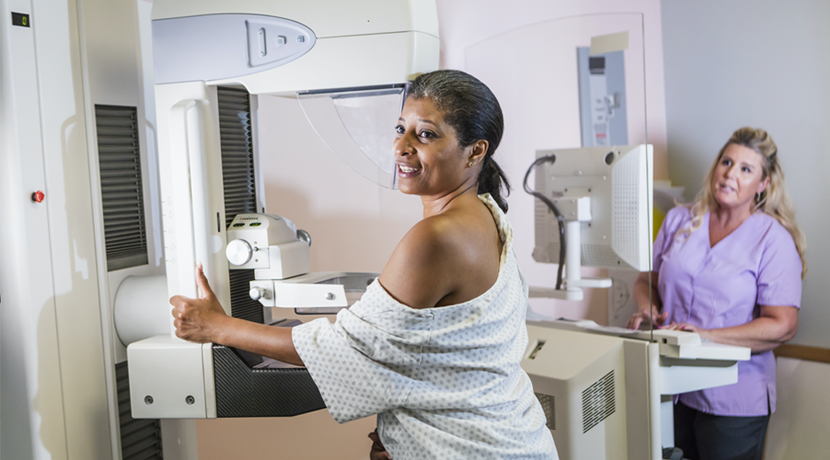
Preventive screenings help catch breast cancer during its earliest and most treatable stages. But there are many underserved communities with people who are in need of screenings and care. NorthShore University HealthSystem is making it a priority to help its community access the care they need with the help of a partnership between our breast imaging departments, patient care specialists and a community health equity liaison.
Our journey started with NorthShore’s Health Equity and Impact Team in the fall of 2020. We looked at data that showed a significant gap in breast cancer screening rates between our low-income and wealthiest patients. An intervention was needed. We collaborated with clinical analysts to look at the data and partnered with the breast cancer and quality teams to develop an improvement plan. We also reached out to community partners to better understand how we could work together to improve outreach and education.
Diana is our community health equity liaison – a role that works with our patient care specialists on patient outreach, identifying patient barriers and finding solutions to overcome them. She works alongside Suzanne to find solutions for scheduling issues as well as review patient charts, reports and prior imaging.
Our main goal is to help patients who live in low-income areas within our service area along with patients that have not returned for their annual follow up. To identify these patients, we use a “Lens of Equity” tool that was developed by our clinical analytics team.
The patients we aim to help often face barriers to breast cancer screenings and care. These include:
- Transportation – In rural areas, there is a lack of public transportation. In other areas there is often fear due to safety issues using public transportation. Through our program, we offer transportation options for patients at no cost to them.
- Language – We have a large percentage of Spanish-speaking patients who need additional support navigating barriers and understanding their plan of care. As part of the program, we have Diana, a native-Spanish speaker, to serve as a liaison between the patients and our care team.
- Scheduling accessibility – Many of our lower-income patients are unable to make it to appointments during traditional business hours. To improve accessibility, we stay open later in the evening and on weekends.
- Fear – Many of these patients are fearful of traditional healthcare. Once outreach is initiated, patients can call Diana for more personalized care that helps alleviate fears. They can also contact Suzanne or any of the leads at NorthShore hospital sites.
Our partnerships with community organizations extend our reach. Through our partnership with the Lake County Health Department, we’ve provided 200 free mammograms to patients who were in need. We also did outreach with Evanston Township High School and met with Spanish-speaking parents to teach them how to do breast self-exams. In addition, we participate in the American Cancer Society’s Making Strides Against Breast Cancer Walk to help more people in the community understand how to do a breast self-exam and the importance of regular screenings.
Our mission is to help everyone in our communities be their best and so far, we’ve surpassed our goal of seeing a 2.1% increase in our screening population. We have a more aggressive target in place to close the disparity gap between low- and high-income patients. With the success of this program, we are also looking to hire more community health equity liaisons to address other disparities with other preventive screenings, such as colonoscopy.
To learn more about NorthShore University HealthSystem’s breast cancer screening, care and treatment, visit us online or call 888-364-6400.